#Star Wars AND Star Trek are both Space Westerns
Explore tagged Tumblr posts
Text
Doctor Who as a Post-Colonial Metaphor
Recently I've been thinking a lot about how beautifully Doctor Who reflects the state of post-colonial British identity, and tumblr seems like the appropriate place to share my ramblings. So let’s see if I can explain in a way that makes sense.
I must start by putting on my obnoxious little film degree hat and reminding everyone that sci-fi is one of those genres that is highly political (as most things are, but scifi even moreso). It turns out it's pretty easy to get a sense of people's fears and anxieties by asking them to envision the future, and that's what sci-fi media does; it uses contemporary cultural standards and ideas to create a vision of what futuristic/advanced science and technology might look like, and how people might respond to it. In doing so, it ends up taking the social and political temperature of the time and place in which it's created.
As such, it's very, very common for scholars to analyze sci-fi media through this lens; even Frankenstein, arguably the first science fiction novel ever written, is often interpreted as reflecting cultural fears regarding swiftly advancing science and technology during the early stages of the industrial revolution. The Day The Earth Stood Still (1951) is another great, very blatant example of how sci-fi and politics can interact. In this movie, a Jesus-like alien ascends to Earth during the Cold War to warn the human race about their imminent nuclear annihilation. It seems corny to us now, but it's actually a great movie and I would highly reccomend it. It's rumored that the US Department of Defense read the script and Did Not Like It because the themes were too anti-war.
In other words, despite often being viewed as too “pop,” too goofy, and too unserious to have any deep meaning, pretty much any scifi story can be analyzed within an inch of its life using a meta social/political lens. It's not the only way to interpret sci-fi, but it's by far the most common. One must simply ask, “what does this vision of science, technology, and/or the future say about us as we are now?”
But anyway. Doctor Who. Disclaimer: I haven't watched the classic series so I'll focus on 2005 onward (still post-colonial so it still holds up, lol). If you've seen Classic and you'd like to chip in, please do.
Genre-wise, Doctor Who is more-or-less a space-western, a subgenre of sci-fi that incorporates Western elements—exploring new frontiers, engaging with unfamiliar civilizations, rogue figures, etc. Star Trek is the peak example of this, but there are many, many others.
Of course, the Western genre is dripping with colonialism due to its historical setting of the American West, and the racist depictions of Indigenous peoples. Space-westerns, consequently, also tend to address colonial topics. Sometimes space westerns are just as racist as normal westerns, but sometimes they use the genre reflexively, to question colonial ideals. A more progressive space-western might be more willing to “humanize” the alien cultures they meet, asking questions like, "how does one ethically engage with foreign societies?" or "When is it appropriate to intervene in a conflict?" etc.
Althought these kinds of questions come up regularly in Doctor Who, especially regarding its anti-war messaging (Time War etc.). These themes become doubly interesting when you use them to inform your interpretation of The Doctor, both as a character and as a symbol.
Consider this: The Doctor is the embodiment of an ancient and immensely powerful being with a bloody history. Their kill-count is quite literally somewhere in the quadrillions. Although they are a self-proclaimed pacifist, they are still constantly a perpetrator of death and destruction throughout the series. The Doctor, despite repeatedly and loudly choosing peace, can never seem to keep their hands clean of chaos and suffering. Doctor Who is about an entity that destroys everything they touch, sometimes on purpose, sometimes not. As an allegory for grappling with the legacy of British imperialism, I'd say it's pretty on the nose.
In this sense, not only is Doctor Who a show about colonialism, it is also a show about identity in the wake of colonialism. It's even in the name: "Doctor Who?" Who is the Doctor? What is their responsibility to the universe? What does it mean to be ancient and powerful and drenched in the blood of millions? How do they move on, become better, without falling into the same traps? What does it mean to be British?
These questions come up over and over throughout the new series, from the destruction of Gallifrey, to the Timelord Victorious, to A Good Man Goes to War, the Flux (arguably), and many, many other smaller plotlines I could mention. Even in the latest series with Ncuti Gatwa, the focus on adoption and family is in a similar vein—where does the Doctor come from? What does it even mean to be “from” a place? How much do your origins truly contribute to who you are and who you become?
How the companions fall within this framework is also interesting; if the Doctor is a stand-in for the nation as an entity, then the Doctor's companion, the everyday British person, is the stand-in for the populace. The companions are ever-changing, ever-evolving, constantly renegotiating their relationship with the Doctor. The companion's ultimate challenge is to find how they fit into the narrative of the Doctor's life, and try their best to come out the other end with a happy ending (ha).
Of course, Doctor Who is owned by the BBC, meaning it is quite literally nationally subsudized TV. As a result, althought the show is actually VERY critical in some places, the Doctor is usually ultimately sympathetic; their good intentions tend to forgive a lot of the problems they've caused. The companion is usually charmed by the Doctors' seemingly endless tragedy of a life. This is a country's state-owned media company working with it's own self-image--it's inherently a work of self-reflection, and perhaps of self-obsession, too.
It would be easy to be cynical about Doctor Who as a product of the BBC, which is state-funded (but notably not owned or directly controlled by the government!). However, I tend to think that just writing it off as propaganda because of this is doing the show a disservice. Yes, there is an inherent privilege and self-centeredness to endlessly forgiving the Doctor, but that's also kind of the whole point; it's a show about coming to terms with one's horrible past. It's a show about learning to formulate a new sense of self. To demand that Doctor Who to be less self-obsessed, to not be about British identity when it is in fact a British show for Brits about Brits, is just a bit unrealistic.
Instead, I choose to believe that Doctor Who can and does use its privilege for good more often than not. The creators tend to be very progressive (as sci-fi so often is) and they can get away with a lot of very progressive messages in the guise of a silly sci-fi show for families. Most recently, I would point to s14e3: Boom, s14e5: Dot and Bubble as examples of thinly veiled rants about the evils of capitalism, war, racism, social media, etc. To ignore or dismiss Doctor Who because it has some form of institutional backing would be doing the actual stories and writers a disservice.
Finally, let me leave you with one last point; One consistancy throughout the new series that I find very charming is the positive effect the companions always have on the Doctor. Companions come and go, which is sad, but they're each special in their own little way, and they each change the Doctor, wearing them down a little at a time. The Doctor is consistently at their worst when they are alone, removed from the people that make them want to be better.
Very often the companion's parting message for the Doctor is "don't be alone.” This can be extrapolated to mean: don't forget we exist. Don't forget to be kind. Even if you can't help your legacy, even if you can't wash the blood off your hands, you can always keep striving to be better. Keep someone around to remind you to be better. And the Doctor, more often than not, does. Because ultimately it is the companions, us the people, that make the Doctor who they are.
It’s this special brand of relentless optimism, this indomitable belief in the goodness of people and the power of that goodness that always brings me back to Doctor Who, one way or another, despite all its flaws.
Edit 11/29: corrected some info about the BBC per the comments!
#once again pls classic fans chip in#I know I missed some points#and it could use editing expanding etc#but this is the gist of it#I just need to get it out#I love Doctor who 🥲#and I love sci-fi as a field#it’s so interesting#I wrote a college paper about bill and Ted’s excellent adventure it was great#doctor who#Peter capaldi#Matt smith#David tennant#jodie whittaker#chris eccleston#ncuti gatwa#RTD#russel t davies#steven moffat#chris chibnall#film analysis#media analysis#essays#essay#media criticism#colonialism#post colonialism#post colonial
33 notes
·
View notes
Text
Black Women writing SFF
The post about Octavia Butler also made me think about the injustice we do both Butler, SFF readers, and Black women SFF writers by holding her up as the one Black Woman Writing Sci-Fi. She occupies an important place in the genre, for her creativity, the beauty and impact of her writing, and her prolific work... but she's still just one writer, and no one writer works for everybody.
So whether you liked Octavia Butler's books or didn't, here are some of the (many!!! this list is just the authors I've read and liked, or been recommended and been wanting to read) other Black women writing speculative fiction aimed at adults, who might be writing something within your interest:
N. K. Jemisin - a prolific powerhouse of modern sff. Will probably have something you'll like. Won three Hugo awards in a row for her Broken Earth trilogy. I’ve only read her book of short stories, How Long ‘Til Black Future Month? and it is absolutely story after story of bangers. Creative, chilling, beautifully written, make you think. They’re so good and I highly recommend the collection. Several of her novels have spun out of premises she first explored through these short stories, most recently “The City Born Great” giving rise to her novel The City We Became. Leans more fantasy than sci-fi, but has a lot of both, in various permutations.
Nisi Shawl - EDIT: I have been informed that Nisi Shawl identifies as genderfluid, not as a woman. They primarily write short stories that lean literary. Their one novel that I’ve read, Everfair, is an alternate-history 19th century that asks, what if the Congo had fought off European colonization and became a free and independent African state? Told in vignettes spanning decades of political organization, political movements, war tactics, and social development, among an ensemble of local African people, Black Americans coming to the new country, white and mixed-race Brits, and Chinese immigrants who came as British laborers.
Nnedi Okorafor - American-Nigerian writer of Africanfuturism, sci-fi stories emphasizing life in present, future, and alternate-magical Africa. She has range! From Binti, a trilogy of novellas about a teenage girl in Namibia encountering aliens and balancing her newfound connection to space with expectations of her family; to Akata Witch, a middle-grade series about a Nigerian-American girl moving to Nigeria and learning to use magic powers she didn’t know she had; to Who Fears Death, a brutal depiction of magical-realism in a futuristic, post-war Sudan; to short stories like "Africanfuturism 419", about that poor Nigerian prince who’s desperately sending out those emails looking for help (but with a sci-fi twist), and "Mother of Invention" about a smart house taking care of its human and her baby… she’s done a little bit of everything, but always emphasizes the future, the science, and the magic of (usually western) Africa.
Karen Lord - an Afro-Caribbean author. I actually didn’t particularly like the one novel by her I’ve read, The Best of All Possible Worlds, but Martha Wells did, so. Lord has more novels set in this world—a Star Trek-esque multicultural, multispecies spacefuture set on a planet that has welcomed immigrants and refugees for a long time, and become a vibrant multicultural planet. I find her stories rooted in near-future Caribbean socio-climatic concerns like "Haven" and "Cities of the Sun" and her folktale-fantasy style Redemption in Indigo more compelling. And more short stories here.
Bethany C. Morrow - only has one novella (short novel?) for adults, Mem, but it was creative and fascinating and good and I’d be remiss not to shout it out. In an alternate-history 1920s Toronto, scientists have discovered how to extract specific memories from a person—but then those memories are embodied as physical, cloned manifestations of the person at the moment the memory was made. The main character is one such “Mem,” struggling to determine who she is if she was created from and defined by one single traumatic memory that her original-self wanted to remove. It’s mostly quiet, contemplative, and very interesting. (Morrow has some YA novels too. I read one of them and thought it was okay.)
Rebecca Roanhorse - Afro-Indigenous, Black and "Spanish Indian" and married into Diné (Navajo). I’ve read her ongoing post-apocalyptic fantasy series starting with Trail of Lightning, and am liking it a lot; after a climate catastrophe, the spirits and magic of the Diné awakened to protect Dinetah (the Navajo Nation) from the onslaught; and now magic and monsters are part of life in this fundamentally changed world. Coyote is there and he is only sometimes helpful. She also has a more traditional second-world epic high fantasy, Black Sun, an elaborate fantasy world with quests and prophecies and seafaring adventure that draws inspiration from Indigenous cultures of the US and Mexico rather than Europe. She also has bitingly satirical and very incisive short stories like “Welcome to Your Authentic Indian Experience” about virtual reality and cultural tourism, and the fantasy-horror "Harvest."
Micaiah Johnson - her multiverse-hopping novel The Space Between Worlds plays with alternate universes and alternate selves in a continuously creative and interesting way! The setup doesn’t take the easy premise that one universe is our own recognizable one that opens up onto strange alternate universes—even the main character’s home universe is wildly different in speculative ways, with the MC coming from a Mad Max-esque desert community abandoned to the elements, while working for the universe-travel company within the climate-controlled walled city where the rich and well-connected live and work. Also, it’s unabashedly gay.
And if you like audiobooks and audio fiction (I listened to The Space Between Worlds as an audiobook, it’s good), then Jordan Cobb is someone you should check out. She does sci-fi/horror/thriller audio drama. Her works include Janus Descending, a lyrical and eerie sci-fi horror about a small research expedition to a distant planet and how it went so, so wrong; and Descendants, the sequel about its aftermath. She also has Primordial Deep, about a research expedition to the deep undersea, to investigate the apparent re-emergence of a lot of extinct prehistoric sea creatures. She’s a writer/producer I like, and always follow her new releases. Her detailed prose, minimal casts (especially in Janus Descending), good audio quality, and full-series supercuts make these welcoming to audiobook fans.
-
Nalo Hopkinson - a writer who should be considered nearly as foundational as Octavia Butler, honestly. A novelist and short story writer with a wide variety of sci-fi, dystopian futures, fairy-tale horror, gods and epics, and space Carnival, drawing heavily from her Caribbean experiences and aesthetics.
Tananarive Due - fantastical/horror. Immortals, vampires, curses, altered reality, unnerving mystery. Also has written a lot of books.
Andrea Hairston - creative and otherworldly, weird and bisexual, with mindscapes and magic and aliens.
Helen Oyeyemi - I haven’t read her work but she comes highly recommended by a friend. A novelist and short story writer, most of her work leans fairytale fantastical-horror. What Is Not Yours Is Not Yours is a collection of short fiction and recc’ed to me as her best work. White is for Witching is a well-regarded haunted house novel.
Ashia Monet - indie author, writer of The Black Veins, pitched as “the no-love-interest, found family adventure you’ve been searching for.” Magic road trip! Possibly YA? I’m not positive.
-
This also doesn’t include Black non-binary sff authors I’ve read and liked like An Owomoyela, C. L. Polk, and Rivers Solomon. And this is specifically about adult sff books, so I didn’t include Black women YA sff authors like Kalynn Bayron, Tomi Adeyemi, Tracy Deonn, Justina Ireland, or Alechia Dow, though they’re writing fantasy and sci-fi in the YA world too.
And a lot of short stories are out there in the online magazine world, where so many up and coming authors get their start, and established ones explore offbeat and new ideas. Pick up an issue (or a subscription!) of FIYAH magazine for the most current Black speculative writing.
562 notes
·
View notes
Text
Fictional Matriarchal Societies
Okay this is a bit of a weird one but am I the only one who has noticed that pretty much every Matriarchal society in fiction is objectively worse than first world Patriarchal or Neutral Gender Dominance societies both in fiction and in reality? Particularly when you compare them to other societies in their same universe, timeframe, and technological advancement?
To keep things simple I'm going to reference three of these societies to make my point. Angel 1 from Star Trek TNG, the Amazon Amazons from Percy Jackson, and the Amazons of Themyscira from DC Comics.
To get the obvious out of the way first, all three of these societies are far more sexist than modern Western and first-world societies in our real life.
In Angel 1 the men are incapable of being allowed to hold any office, join the military, or be actual citizens. They are not dissuaded or have to work harder for these jobs like how many women have to in the real world, they just straight up can't. This sexism is so severe that when a group of men-- many of whom admittingly aren't actually from Angel 1-- stand against this, they and all their supporters are set for execution and it requires outside powers threatening them to get the Matriarchal leaders to agree that banishment to a desolate part of their planet is a good downgrade for their punishment. This was a society that advanced enough to have Warp Travel and yet they hadn't even STARTED on equal gender rights yet. Also, their level of technological advancement is far lower than average for a space-faring species in Star Trek TNG. Meaning not only do they fail to advance socially at even close to the same rate as the originally Patriarchal societies of the Star Trek universe, even needing outside influence to get the ball rolling, they also MIGHT be advancing slower technologically as well.
Next up are the Amazon Amazons from Percy Jackson. They literally put collars on men and made them slaves. This happens in modern America and they say they do this to 'show men their place'. They side by side with a society that most deem Patriarchal but still gives women equal rights under the law, but still believe that their way is better and are pro-gender-based slavery. And remember that this group never does SHIT of any actual importance in the entire series. The best they do is act a pitstop and as a lore drop for one of the leaders of New Rome. They are objectively the weakest group that fall under the Greek Pantheon in Percy Jackson despite being one of if not the largest with no unique mystical or technological advantages to speak of. The Cyclopses of Atlantis, all of whom are male and basically have severe autism, are a more impactful accomplished group from what I can tell, and I don't think we've even heard of most of them since they helped attack Typhoon back in The Last Olympian.
Finally the most famous and in my opinion worst offenders on this list, the Themysciren Amazons from DC Comics. Even if you don't take into consideration things I know aren't canon anymore like how they repopulated via mass rape and murder before chucking male children into the ocean, there are still a LOT of things that showcase that they are terrible. Though admittingly some of these aren't fully their own fault.
To keep things brief I'll just highlight how they condemn men and 'Man's World' for the existence of wars, saying it is the fault of the nature of men and that it is the duty of Amazons to show them a better path. This viewpoint they are written to have ignores the fact that there have been women who declared and perpetuated wars before and the fact that the Amazons really have no place to talk about the subject because due to them living on Themyscira they never actually have to deal with the problems that cause wars to occur. Think about it, due to them living on an island protected by, hidden by, and blessed by the gods themselves the Amazons never have to deal with things like cultural friction, border disputes, resource scarcity, religious differences, or trade routes and deals. Hell, due to Hippolyta being immortal-- or depending on the continuity all of the Amazons being immortal-- even periods of succession and political upheaval are nonexistent to them! They condemn men for using violence to deal with these issues despite never having to deal with them themselves. And when they DO have the SLIGHTEST taste of ANY of these problems, their reaction is to kill people. Seriously, a man so much as washing up on their shores is grounds for execution, and in the semi-rare storyline of Diana bringing male heroes to the island to help save it, she is punished for allowing men to set foot on their island. They are objectively hypocrites who are just as if not more violent than men. And this sucks for them since outside of like, six of them they are all basically canon fodder who mostly exist to get their asses kicked and give Wonder Woman a reason to get pissed off. Remember, most of them aren't demigods and can't block bullets with their bracelets. They are just tall and fit women with spears and shields and low-level metahuman physical buffs.
((Note: A very big exception to that 'Amazons are fodder' statement is the Flashpoint continuity where the Amazons are keeping pace with all of Atlantis as the two destroy the whole world. Though I will be docking points from this example because it is a war that started because Wonder Woman fucked a married man and killed his pissed-off wife before presenting him with her severed head. Meaning she started it... Also, I'm pretty sure the Atlantians having a higher population, greater ability to reproduce, and their attempts to flood the Earth while Atlantis itself couldn't be directly attacked by the Amazons all comes together as a guaranteed long-term win for the Atlantians.))
Speaking of spears and shields, their level of technological advancement, though it does differ between writers and continuities, is almost always shown to be stuck roughly in the Roman era. And yes, I know that civilizations that are isolated or have an abundance of resources don't tend to technologically advance as quickly as others, but these women are TWO THOUSAND YEARS behind the curve! As in, they haven't advanced since the last members of the island were sent their from Men's World, meaning their advancements all came from MEN! And it's not like their mystical abilities make up for that! Can you name a prominent magic user from Themyscira? Because I sure as hell can't. The best I think there is is Circi and she ISN'T AN AMAZON! The best magic users in DC that aren't demons or gods or what have yous are probably Kent Nelson, Giovani Zatara (when he isn't dead), Zatanna Zatara, and John Constantine. That's 3/4 men.
In short the Themysciren Amazons are written to be self-righteous sexist jerks who believe that because they never had to deal with any real-world political or societal issues they are better than men outright.
I don't know if this is because these societies are rarely if ever the focus of a longer story or if it's a long-term oversight from the writers, but all these examples paint the picture that women being the majority rulers of societies makes things worse in the long term. No social advancement, cases of extreme social regression, slower or nonexistent technological advancement, weaker military forces, inability to have a significant impact on their respective greater settings, need I go on?
But enough of this. It's very late and I wrote this all out in a single go. If anyone wants to dispute this, please give me some examples of Matriarchal societies in fiction that aren't socially and/or technologically inept compared to their Patriarcal/Non-Single-Gender Dominated counterparts. I would honestly love to hear them.
#DC#DC comics#wonder woman#themyscira#diana of themyscira#Star Trek#star trek tng#Angel 1#Percy Jackson#PJO#PJO Hoo#heroes of olympus#amazons#fiction#world building#writing concept#matriarchy#rant post
11 notes
·
View notes
Text
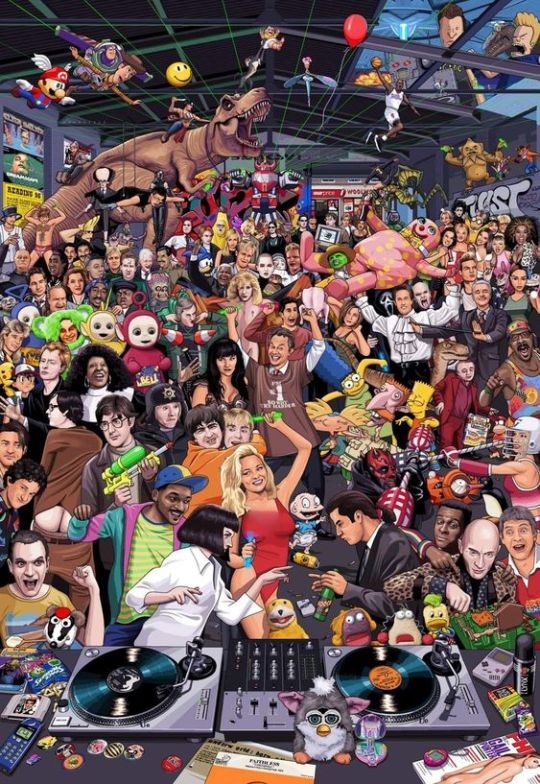
The 1990s was a pivotal decade for geek culture, solidifying many of the trends and franchises that continue to influence pop culture today. Here's an exploration of the various facets of geekdom in the 90s:
Video Games
The 1990s were a golden era for video games, seeing the rise of iconic franchises and gaming consoles.
Consoles and Games:
Super Nintendo Entertainment System (SNES) and Sega Genesis were at the forefront of the early 90s gaming scene. Classics like "The Legend of Zelda: A Link to the Past," "Super Mario World," and "Sonic the Hedgehog" became household names.
The mid-90s introduced the Sony PlayStation and the Nintendo 64. Games like "Final Fantasy VII," "Metal Gear Solid," "Super Mario 64," and "The Legend of Zelda: Ocarina of Time" revolutionized the industry with their storytelling and 3D graphics.
PC Gaming:
The rise of PC gaming brought titles like "Doom," "Quake," "Warcraft," and "Starcraft," which laid the groundwork for modern first-person shooters and real-time strategy games.
The introduction of the CD-ROM allowed for more complex and graphically intense games, expanding the possibilities of game design.
Comic Books and Graphic Novels
The 90s was a transformative period for comics, marked by a combination of innovation and market upheavals.
Marvel and DC Comics:
Marvel experienced a surge in popularity with the introduction of new characters like Deadpool and the significant events like the "X-Men's Age of Apocalypse" and "Spider-Man's Clone Saga."
DC Comics shook the world with storylines such as "The Death of Superman" and "Batman: Knightfall."
Independent Publishers:
The formation of Image Comics by former Marvel artists brought a wave of creator-owned series like "Spawn," "The Savage Dragon," and "WildC.A.T.s."
Vertigo, an imprint of DC, produced critically acclaimed titles such as "Sandman" by Neil Gaiman and "Preacher" by Garth Ennis, pushing the boundaries of mature storytelling in comics.
Science Fiction and Fantasy
The 90s were a golden age for science fiction and fantasy, both in literature and on screen.
Television:
"Star Trek" had a strong presence with "The Next Generation" continuing its success, followed by "Deep Space Nine" and "Voyager."
"The X-Files" became a cultural phenomenon, blending science fiction with horror and conspiracy theories.
"Buffy the Vampire Slayer" redefined the fantasy genre on television, combining teenage drama with supernatural elements.
Movies:
Blockbuster franchises like "Jurassic Park," "The Matrix," and "Men in Black" showcased cutting-edge special effects and imaginative storytelling.
The re-release of the original "Star Wars" trilogy in special editions prepared the groundwork for the much-anticipated prequel trilogy.
Anime and Manga
The 90s saw the global explosion of anime and manga, making Japanese pop culture a mainstream phenomenon.
Anime:
Series like "Dragon Ball Z," "Sailor Moon," and "Pokémon" became immensely popular worldwide, introducing many to the world of anime.
Films by Studio Ghibli, such as "Princess Mononoke" and "My Neighbor Totoro," received critical acclaim and international recognition.
Manga:
Manga series like "Naruto," "One Piece," and "Berserk" began their runs, setting the stage for long-lasting popularity.
The publication of "Shonen Jump" in English brought many of these series to Western audiences.
Role-Playing Games (RPGs)
The 90s were a significant decade for tabletop RPGs, with many classic games being developed and popularized.
Dungeons & Dragons:
The release of the second edition of Advanced Dungeons & Dragons (AD&D) in 1989 carried through the 90s, with campaigns like "Planescape" and "Dark Sun" becoming fan favorites.
Other RPGs:
"Vampire: The Masquerade" by White Wolf Publishing introduced the World of Darkness, a setting that offered a dark, gothic-punk alternative to traditional fantasy RPGs.
The cyberpunk genre was well represented by games like "Shadowrun" and "Cyberpunk 2020," capturing the gritty, high-tech, low-life aesthetic.
Collectibles and Trading Card Games
The 90s witnessed the birth and explosion of collectible card games (CCGs), with "Magic: The Gathering" leading the charge.
Magic: The Gathering:
Created by Richard Garfield and released by Wizards of the Coast in 1993, "Magic: The Gathering" became a groundbreaking and immensely popular game, sparking a new industry of collectible card games.
Pokémon:
The Pokémon Trading Card Game, released in 1996, quickly became a massive hit alongside the video games and TV series, contributing to the global Pokémon craze.
Internet and Technology
The rise of the internet in the 90s played a crucial role in shaping geek culture.
Early Internet Communities:
Bulletin board systems (BBS), forums, and newsgroups like Usenet allowed geeks to connect and share their interests in ways that were never before possible.
The creation of fan sites and the use of IRC (Internet Relay Chat) facilitated the growth of online communities dedicated to various fandoms.
Technology:
The proliferation of personal computers and the advent of the World Wide Web democratized access to information and entertainment, allowing geek culture to flourish and expand globally.
In conclusion, the 1990s were a transformative decade for geek culture, characterized by the rise of influential media, the advent of groundbreaking technology, and the growth of vibrant communities. The era laid the foundation for many of the trends and franchises that continue to shape geekdom today.
#90s tv shows#90s aesthetic#90s fashion#90s anime#90s music#90s nostalgia#1990s#vhs#nineties#90s movies
11 notes
·
View notes
Text
battle beyond the stars (1980), a space western adaptation of seven samurai (1954), is a very interesting and enjoyable film. it was fairly openly created to ride the wave of popularity from star wars (1977). in my opinion, however, it matches or exceeds that film in terms of interesting characters and sets. in terms of characters, this film takes a more star trek-like perspective on species than star wars’ relatively culturally unified setting; in this film, representatives from a wide range of species provide a variety of perspectives on conflict and violence. some examples include an old mercenary trapped in the raided-out husk of an erstwhile hub of filth; a profiteer who is the last of his species; a representative of a culture that glorifies death in battle above all; and a cowboy larper, the confederate flag on whose ship indicates the unexamined way many space westerns lift the look and tropes of classic westerns, romanticization of the confederacy and all, to convey their aesthetic of utter freedom to their all but uniformly white characters. leaving aside the characters, the set design and special effects—largely created by james cameron in his first in with the film industry—are both incredibly well-done, especially for a shoestring budget, and also convey the diversity of culture present in the characters. some sets have the greebled, dirty industrial look of star wars; some have the clean and orderly look of star trek, while some even have the organic feel the sets of farscape would later have. the sheer variety of visual looks did give the film a jarring feel at some points, and the plot was undeniably thin from time to time. regardless, battle beyond the stars (1980) is a very interesting and enjoyable film, both very close to and departing from its contemporary star wars (1977)
20 notes
·
View notes
Text
Sonic the Oz-Hog Act 4/12: Knux Readux!
Knuckles the Echidna Volume 2 issue 1 AU Publication Date: 14th April 1997 Price: $2.70
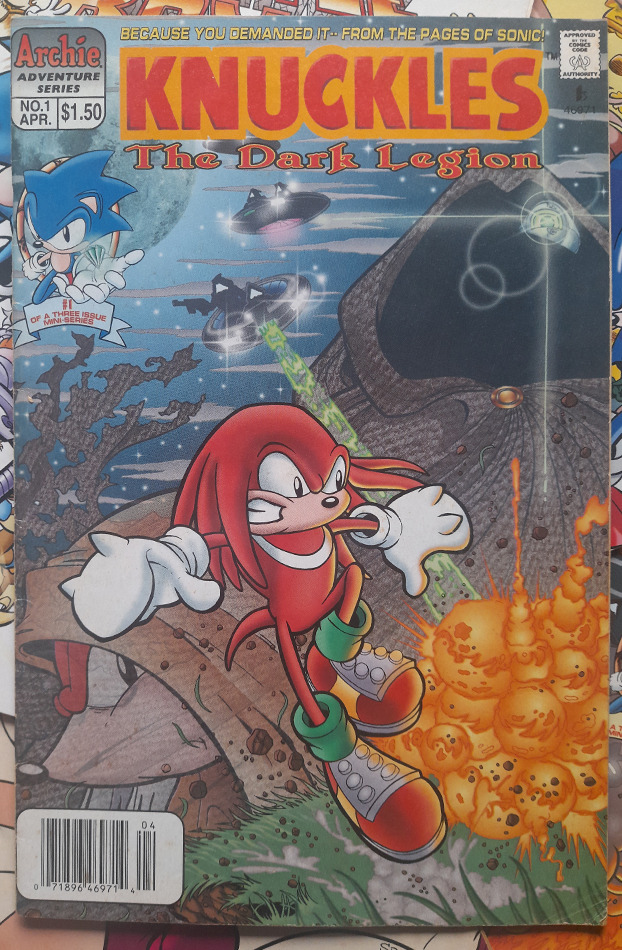
Spinoffs. No self-respecting media can live with them. No self-aggrandising media can live without them. And for those of us who lived through the space year that was 1997, corporations were chomping at the bit for a slice of those sweet spinoff dollarydoos.
Best place to start and witness such influence would be, arguably, the cinema. After Baz Luhrmann's blockbuster remake Romeo + Juliet spent weeks atop the box office, the majority of March was a bitter struggle between Wes Craven's thriller Scream and Cameron Crowe's football drama Jerry Maguire. A fascinating if ultimately pointless grudge match between two distinct genres. For all their efforts, neither claimed victory when by month's end, a film 20 years their senior blasted both off the map. The Star Wars Special Editions had arrived.
The promotion (and merchandise deals) was huge. A New Hope proved an instant hit, swiftly followed on 10th April by The Empire Strikes Back. Everything old was new again, and the re-hits just kept coming. Audiences pounded the pavements, eager to revisit Jurassic Park when its sequel The Lost World saw release on 29th May (only a week after its US premiere, a then-impressive feat). Superhero buffs ignored the winter freeze to watch Batman and Robin on 26th June, a film often lauded yet pulled respectable numbers and local reviews at the time.
Speaking of space, following a successful campaign through latter 1996, the Oddbodz were back. Smith's Chips and Glow Zone launched their second series of 61 collectable glow-in-the-dark cards featuring a myriad of wacky, wicked and occasionally controversial space-themed characters. If gross-out humour wasn't your speed, ripping into packs of Thins, Ruffles, Cheetos or Doritos chips instead offered adventures in a galaxy far far away with official Star Wars 3D Magic Motion and Techno Tazos.
After the toyline's initial launch in January, Beast Wars had successfully put Transformers back on the map, though kids would have to wait at least three more months to see their favourite characters in animated action. To Channel 7's credit, they at least gave the program a decent timeslot. More than can be said for Channel 9's decision that April to broadcast the all-new Star Trek: Voyager season 2 and Star Trek: Deep Space Nine season 4 at the ghastly time of 11pm weeknights.
In spite of the former losing 30 minutes off its timeslot, the rivalry between weekday morning children's entertainment continued between Agro's Cartoon Connection and Cheez TV. Both were banking on the spinoff craze, and viewers waking up 14th April could choose between the premiere of Power Rangers Zeo episode 'Oily to Bed, Oily to Rise', or the premiere of Earthworm Jim episode 'Darwin's Nightmare'. For the musically inclined, American rockers No Doubt had enjoyed 8 weeks atop the music charts with the third single on their third album, 'Don't Speak'. At least until April saw them bumped off by Aussie pop prodigy Savage Garden and their third single 'Truly Madly Deeply'.
But of all the spinoffs to arise and bedazzle locals, after three years of development and an exclusive preview party the night prior, SEGA World Sydney opened its doors at 4pm on Saturday 22nd March 1997. Touted in print and on TV as "Australia's Largest Indoor Theme Park!", it offered hours of unrivalled entertainment and programs for Sydneysiders and visitors alike. Anyone who could afford its hefty entry fee lost themselves in all the games and rides they could handle (except Mortal Kombat, which was pulled last-minute). An escape into pixilated fantasy guaranteed to forget their real-world troubles for several hours. Mundane adult things like Victoria and Western Australia's brief yet brutal summer bushfire seasons where 3 lives and some 59 homes were lost. Or how after one year into the top job, captain conservative John Howard faced international anger over comments at the United Nations General Assembly, and local anger over casual dismissing threats by extreme right-wing rival Pauline Hanson's One Nation party.
Be it stage shows, costumed cameos and all types of merchandise featuring their antics, fans of Sonic, Tails, Sally and Robotnik were in paradise. Unfortunately the same couldn't be said for a fifth member of the cast. For someone who enjoyed strong popularity and a species originating right there, SEGA World put the bare minimum effort into giving Knuckles the Echidna his own time to shine. A remarkable oversight undoubtedly leaving young fans wondering where that embattled echidna was hiding. As luck would soon have it, they needn't look far.
Nestled comfortably among the shelves between Sonic issues 45 and 46 came Knuckles: The Dark Legion. Sales had proven strong enough (or at least stronger than Tails and Sally's comics) to warrant the development of a second miniseries. Exciting in its own right, only amplified when exclusively announced through AOL in January 1997 it would evolve to a fully-fledged ongoing spinoff. No longer was trotting off to the newsagents exclusively a Friday end-of-month treat. Knuckles' arrival meant a mandatory Monday mid-month booster for us deprived of Mobian adventures.
Over the course of its 32 issue run, Knuckles the Echidna was, much like Endgame two months later, once praised as a pinnacle of Archie Sonic. Fans adored the series, giving ol' Rad Red his own unique mythos and adventures. While Sonic naffed around aimlessly in a post-Robotnik world, we saw Knuckles as the cool, 'mature' comic. He had stakes. He had drama. Quite a turnaround after the heavy criticism its writer took in late 1996 over Sally's leaked demise. Within months he was described as "a kewl writer!", or "one of the ONLY "good" and "balanced" writers Archie has", or how they're "so much better then sonic comics now its not funny." with "all the good villains and family members." Fans swarmed en mass to his WWWBoard, creating their own stories, characters and entire websites tied to the Brotherhood and Dark Legion. Not everyone agreed on the book's mission statement "Why does everybody liek it so much? All it is really is a bunch of Penders' characters running around with slight appearacnes by Chaotix and occasionally knuckles himself.", but it made a lot of other people happy. Enough for both The Dark Legion and Lost Paradise reissued as 'back catalogue' orders to selected comic book stores in late 2004.
And just like Endgame, those nostalgic memories have since dissipated when adults reflected on his tales with matured, scrutinous eyes. We grow. We learn. We reevaluate on what was once adored as adolescents, realising perhaps those good times weren't all that good. Maybe the series and characters were fine in concept but lacked competent execution. Maybe our childish expectations meant they were never good to begin with and the critics were right all along.
The youthful, creative glory days from the late-90's to mid-2000's of Knuckles of an Echidna, Kragok Comics, Echidna Gals, Dark Legion HQ, Echidnapolis, Knux Redux, Tisha-Li's Dark Legion Camp, Kensuke Aida's Julie-Su Shrine, Echidnoyle, Shattered Moonlight, Knuckles 9000, Kiri Megami's Chaotix Hideout, Darkest Mysteries, and of course True Red's mighty Knuckles Haven have long passed.
It's from learning said past our futures are forged, but do any of these characters have a future? Do they even deserve a future?
Or maybe it's just best they're all forever banished to the Twilight Zone of cultural irrelevance.
Next Time: For years I said it wouldn't be done. Yet promises, like the hearts and cheekbones of fictitious rodents, were made to be broken. Will May's hedgie rectrospect-y truly be worthy of such hate? Or have revisionists painted a far worse picture over the past two decades?
< Previous \ Index / Next >
#Sonic the Hedgehog#Archie Sonic#Sonic the Hedgehog Comics#Archie Comics#Comic Books#Ken Penders#Manny Galan#Andrew Pepoy#Jeff Powell#Karl Bollers#Justin Gabrie#Knuckles the Echidna#Echidna#Dark Legion#Australia#1997#Musings
14 notes
·
View notes
Text
is it just me, or has Star Trek aged particularly badly as a franchise? I’m not talking technobabble; I’ll give most pre-1970s shows a pass for bad science, since they were really doing their best, and some of my favorite shows use the exact same bad science. I’m talking about it’s tone. I used to like it a lot, but now it just feels really smug and pretentious. “look at how MY secular values have produced a SPACE UTOPIA! All because we have abandoned SUPERSTITION for SCIENCE!”. give me a break.
it somehow manages to be both grossly ethnocentric in it’s embrace of western values while at the same time completely dismissive of the culture that those values sprung from. it is unabashed worship of modernism, a philosophy that died 2 decades ago because of how shallow and meaningless it was (only to be replaced with post-modernism which is arguably worse). with the notable exception of the inclusion of the Ferengi there seems to be no real effort to question or critique the philosophy, or even add a little nuance to it. it never makes any attempt to address the societal ills that resulted from modernism and secularism. it is the storytelling equivalent of drinking mayonnaise.
say what you will about Star Wars, but at least it took 2 REALLY BAD movies to ruin it for me (I still maintain the Force Awakens had some potential). but all it took to ruin star trek for me was getting a bachelor’s degree in the social sciences (history, leaning heavily toward anthropology) to see how full of shit it really is.
edit: it seems that most of the problems I have with the franchise came out of TNG and DS9, not the original series. so I guess... take this as a post about how the original is better than it’s successors?
43 notes
·
View notes
Note
❛ fine. you were right, and i was wrong. happy now? ❜ / suguru .
dialogue sentence starters : accepting
WARM COLORS COVET TOKYO'S SKYLINE; the local bars are buzzing with life as people flock to them after busy workdays. From the higher tiers of luxurious penthouses in Shinjuku they resemble ants scurrying to the nest at sunset — the commotion a distant white noise. But down here, where life happens, the city's veins pulse with a myriad conversations, strong smells and bright lights. And in a quieter crevice of urban chaos, a corner Hot Pot restaurant advertises its 'all you can eat' refill policy on such Thursday evenings. The red lanterns sway in a cool breeze that carries the remnants of spring; a stray, crinkled up movie ticket dances on it ( ' The Da Vinci Code — 05 / 20 / 2006 ' ) and slaps on the light fixture outside the entrance.
Inside, a corner table accomodates the trio, scalding broth rising in the middle. Another small dish of ingredients is carefully stacked atop the pile of empty ones, painted fingernails carefully parting with the intricate gilding to its blue & white porcelain design. Suguru quirked a brow upon noticing the way it was beginning to get in the way of him looking to Shoko; the reason why they were getting jilted looks from the staff, no doubt. They must have not accounted for the possibility of three hungry, hungry teenagers visiting at this time. Between an early plane ride home, a morning run, classes, dojo training and a sudden quick trip to pick up Utahime from a mission site, they'd barely found a chance to appease their growling stomachs on ramen cups, energy bars & bland cafeteria food.
An argument had been stretching through every part of that day; from drowsy mumbling at the airport, to pants while doing laps, to the communal shower stalls, class & car rides, the burning question of 'was Star Wars copying Star Trek' or vice versa had been chewed up incessantly between the two boys all throughout. After a lengthy debate on what constitues a science fiction movie ( 'One of them is a space exploration, the other is a western set in space!' — yelled over the hiss of pouring water, followed by Satoru's coughing while Suguru's habits of boiling himself alive in the shower were clogging the stalls with steam ) they had decided 'genre' and film content was a subjective criteria for which franchise copied which, so it all came down to 'which one came out first'. Well, for all they knew, both were pretty timey by now.
Shoko had been idly mulling over some gruesome photo evidence of a reported crime scene that was suspected of curse-related activity. The toothpick she'd been rolling barely twitched between her teeth when Satoru's phone screen finally loaded the web-page of a movie review site that mentioned release dates. Her brow quirked, albeit never directly looking at the white-haired teen as he perked up with the realization, instead using her free hand to nonchalantly dip a thin slice of pork into the beaten egg-wash. Still, a light snort escaped her with the admission, earning a side glance from Suguru, who had been casually dropping a couple of mushrooms in the broth beside her.
His lips had pursed with a thinly veiled smirk -- pretending as though he did not feel one bit vindicated. He'd claimed to be 'over it' a few minutes ago, after all, so he had to save face now, didn't he? Besides, there was a strange gratification in being the bigger person. Somehow, Satoru's influence pushed him to indulge the guilty pleasure of boasting — perhaps because, next to his abrasiveness, Suguru always seemed to have the better manners of the two. But gods knew, he was not humble.
And as much as he tried to be, there was still that smirk playing on his mouth as he pompously reached out to stir a piece of pork in the soup, holding the appointed bowl under it before bringing it to his mouth, so as not to stain the lavish tablecloth. He would have prretended to go back to eating like nothing had happened — until that last line had piercing violets snap up to antagonize the blues staring through him from the other end of the table. Are you happy now? Oh, this kid never knows when to shut up, does he. His lips press down on that smile, then, hold onto it as he swallows.
❝ Mm, I don't know, Satoru. I don't get as excited about eating ramen as much anymore, either, when I've had it so many times already. ❞ The implication lingers heavy between them that he's usually the one being right ( subjective — they lost count of the score between them and Shoko refuses to play refferee ) He spends a moment longer challenging him with his eyes alone, before gently pushing the egg mixture bowl in his direction across the table.

❝ It's your turn on the refill, by the way. ❞
Albeit the cold smile, there's a mean edge to Suguru's tone that earns a sigh from the medic before she quickly excuses herself for a smoke break in the designated area.
#( awiefa shoko is like 'nopes out of there ' )#( sugu vc: now be a good boy and admit it properly - )#oc6lar#ANSWERED.#꧕ 🇹🇭🇪 🇧🇱🇺🇪 🇸🇵🇷🇮🇳🇬 ꒰ ᴠᴇʀꜱᴇ 003 ꒱
3 notes
·
View notes
Text
Generally speaking, people view shipping as an intellectually lazy way of engaging with media. And I’ve never found a compelling argument for that idea because they rarely give a full definition of what shipping is. Often people will wrongly assume that shipping is the equivalent of the affirmative behavior of fan theories, a reasoned argument of what should be canon. Now, this has been a form of shipping but shipping is highly specific to culture and time. I could give you a whole history lesson on the premise of star trek or the relationshippers of x-files or the difference between western fandom and eastern fandom, but that's neither here nor there. But the idea of a ship needing to be canon or "endgame" comes from a period of time when queerbait was common but it was not recognized as bait but rather foreshadowing. This created a small but vocal group of people who brought an affirmative mindset to fan theorizing in what used to be a transformative space. Thankfully nature has healing and shipping is no longer stuck in “should” but instead in the “coulds” and the “what ifs.” Shipping at its core is a creative means of dissecting relationships both romantic, platonic, and even antagonistic. It highlights or even transforms canon into character-driven storytelling which is something I find valuable in an age of action blockbusters franchises.
And this is why I find people viewing shipping as “lazy” is detrimental to how we engage in literature. I have yet to find affirmative fan spaces that have an equivalent of shipping, a behavior that highlights human connection. Affirmative fans don’t talk about what characters bring to each other but what they bring to the plot or maybe how they make the main character look good, even then it’s not a two-way street. And I find it beyond frustrating because it has seeped into the mainstream. The resistance towards character and emotion has made everything flat and hollow. The biggest complaint against the Avengers is that they are co-workers, not family. The Star Wars sequels don't feel cohesive because relationships aren't preserved between movies despite the chemistry of the original trio carried the original trilogy. Y’all hate Dan Slott because he sees the women around Peter Parker as set dressing rather than equal parts of a relationship. When you value spectacle and reason over connection and emotion you have lost the humanity of storytelling
#sometimes i make good points on tiktok#but i refuse to post a tiktok on tumblr#but i will give yall scripits#because yall should not be on tiktok
26 notes
·
View notes
Text
VLD Retrospective: My POV as a Queer Biracial Asian Aspie
I don't generally enjoy listing my demographics in public spaces but for a Voltron Retrospective, I find it Quite Necessary to better convey how much VLD meant to me personally. This is one fan reconciling with a work I enjoyed for years, remain saddened for, and felt betrayed by. lf I'm good for anything, it's my being a Living Statistical Outlier.
VLD gave me explicit representation within its main cast: it gave me Shiro, who I clocked as chronically ill well before it was confirmed (Like Knows Like) & struggled with mental illness too (I'm not a war vet but Shiro's implicit Medical Trauma was Also There). Shiro is also, very obviously, an Asian &, as later revealed, a Queer Asian. There are few Queer Asians in western media who are Actual Characters: Shiro was (& remains) fun to have on board. It was, primarily, his struggles with his physical & mental health that most resonated with me.
Pidge is someone a lot of fans identified with, being a quirky genderbender maligned for her relative youth: I'm an autistic female who is gender "meh" so Pidge was "Representation" but she wasn't New nor Almost Unprecedented like Shiro or, as I'll elaborate further on, Keith. Every AFAB, every youth has felt undermined by their assumed gender & their youth: this is Not New. Pidge is fun but she wasn't Groundbreaking, not to me.
Keith and, to a lesser degree (as in assocoation with him), the "Half-Galra" Misfits were who I most identified with. Even before Keith was having Existential Crises over being Half-Galra, Keith read as someone biracial: his name, "Keith Kogane", makes him a white-passing Asian . I think current consensus is that Keith's Dad was "Mixed Asian*" but Keith's "orphan" (& secret alien) status prevented him from engaging with his heritage.
I am Not Galran (so far as I know) but I am a white-passing Asian & someone of "Two Worlds" (half white, half east asian). Star Trek's Spock established how most subsequent works of the sci-fi genre depicts half-human aliens: all the vibes of being Biracial, existential crises about Passing & feeling Disconnected ("rejected") by either/both halves of one's identity. Keith checks those boxes and Lotor's Halfsie Squad are similarly Coded (to lesser degrees).
Aliens, half-human ones especially, are very easily read as Neurodivergent as in "has ADHD &/or ASD": Keith continued this tradition & it further isolated him from his peers, especially because (like many of us on The Spectrum) he grew up "Undiagnosed". Keith knew he was Different but no one had the correct Context for his "Difference": this lead him to feeling Wrong, Rejected and Alien. This is an experience Familiar to anyone belatedly recognised as having ASD and also to Literally Any Queer Person.
To summarize the above: Shiro meant A Lot to me because he struggled with his health in silence (& was Asian); Keith meant a lot because his Human Demographics & Coding match almost entirely with my own. Shiro became "more" Important to me through his being Keith's Most Important Person (KH fans: you see where this is going): I was already Attached to Shiro, Keith made me invested in him.
KH fans knew from my invoking of "Taihetsu no Hito" [JP for "Most Important Person"] that, through being Invested in Keith & thus Shiro, I quickly Recognised that Keith? Desperately in love with Shiro. I did not, however, consider Shiro likely to Act on any Reciprocating of such feelings (which he did show signs of developing, as early on as that Stranded From Everyone Else and "when I die, you be Black Paladin" episode) due to the implied age gap between them. I knew Shiro was Younger Than Assumed (very early 20's at oldest, I figured from Contextual Clues), that Lance & Hunk were about 17 & that Keith was Older than Lance (so, 18). The age gap between Shiro & Keith was never that much of an issue: it was their difference in Rank & the ages they were at their First Meeting that were the "real" obstscles, to my mind. Season 6 or 7 did a Flashback that made Keith 14 when he first met Shiro: that very much explains why Shiro was reluctant to acknowledge attraction to Keith & unlikely to act on it. Keith did, however, read as Crushing On Shiro pretty much from their first encounter (Keith stealing Shiro's car was a very obvious effort to gain Shiro's attention & respect: something Keith was unlikely to recognise as Crush Evidence but Shiro definitely did).
And then Shiro lost 3 years to Time Dilation while Keith gained 2: their Reunion post-Space Whale was very telling. For the first time, Sheith actually seemed genuinely plausible to me. Keith had had a Glow Up that allowed Shiro to stop thinking of Keith as the kid he'd been when they first met & actually admit that his excuses to not act on any attraction had stopped holding weight. I remain completely convinced that "Kuron" had fallen, equally & just as desperately, in love with Keith over the series and that the Aggression Kuron exhibited toward Keith was as much caused by That (Gay Pining he refused to act on, even as Keith ran around in his Infamous Blades Uniform) as it was by Haggar (& Kuron's growing suspicions on his "true" nature).
Then there was the "You're my brother... I love you!" scene. Initially, given The Current Events of the time, I was irritated by the Abrupt Brother-Zoning from the Very Obviously Pining Keith to Shiro.
Then I noticed the order of these sentences: first, "you're my brother" (neither Shiro nor Keith have any siblings: in asia, there's MLM equivalent to "they were Roommates" in "they're sword/sworn brothers") and THEN, more desperately and while at the cusp of death... "I love you".
VERY ON BRAND, KEITH. It's also the "I love you" that gets through Kuron's programming enough for Keith to save them both. From my observations of VLD, the sole remaining obstacles to Sheith sailing were "will Shiro retain Kuron's memories and, if so, will he accept Kuron as being another Him" and "will the writers be able to get the execs to sign off on TWO queer paladins being queer with EACH OTHER"?
and then... the love confession was never addressed & Shiro stopped interacting with any of the Paladins beyond a professional setting.
By then, a lot of the show was looking Off and I actually looked at the online Voltron fandom to see if other people were Connecting Dots: some Meddling had happened, Shiro was being OOC as all heck, Allura and Keith seemed pretty miserable, Romelle was Sus as Heck, why was Allurance happening, where the heck is Lotor (etc)....
I was, like everyone else, greatly upset by Allura's needlessly being Killed Off and by Shiro's Stock Photo husband. I was also Not Impressed by the alleged "happiness" found by any of the Paladins: Shiro retiring his greatest dream, of flying and exploring the galaxy when he had just found out he Wasn't Going To Die from his Chronic Illness? Jim Kirk, another charismatic spaceship captain who loved to explore the universe, had a similar "retirement" ending for its Heroic Captain.
The first Star Trek film, set post-series, conveyed exactly how Shiro's "happy" ending played out for a character Shiro was almost certainly inspred by: Captain James "Jim" Tiberius Kirk.
Captain Kirk's "happy ending" was introduced in TMP as being: a promotion/retirement, marriage, & settling on Earth. Sound familiar, Shiro? TMP then shows how that "happy ending" plays out for someone like Jim (or Shiro): barely a handful of years later, Jim is miserable in his "retirement" (he was Promoted to a desk job); his Very Sudden marriage to a Previously Unknown Character is crumbling (& is even implied as being arranged by Starfleet's Brass to keep their Poster Boy on earth!); he clearly misses his Team (his Found Family) & at his first "valid" opportunity to get his Team together to fly into space again? That's exactly what Jim does.
Star Trek: TMP also, incidentally, features Jim living out some kind of Space Divorce Drama with his Right-Hand Man, the Half-Human Alien Spock. The two had apparently spent all those years apart and Spocks's "logical response" to [everything post-TOS] was... becoming a Vulcan Monk in order to Purge All His Emotions. (Krolia, please tell me that the Galra do not have an Equivalent to Vulcan's kolinahr & that, if it DOES, you Forbade Keith From Doing It).
Jim & Kirk saved each other, often very impossibly, in every other episode of TOS. They were also so widely shipped by fans that the "founding" of modern fandom cukture is often attributed to those first K/S shippers.
The easy Parallels between Spock/Kirk to Keith/Shiro were something that seemed to increase as VLD continued, likely as its creative team started recognising how naturally Keith & Shiro played out that epic space romance. The relationship between the Black Paladins was consistently emphasized within the series (until it abruptly Wasn't) and their bond was considered the strongest shared by any two paladins. A Sheith required very little effort from VLD's creative team and, given the Time Dilation plot point, that effort WAS made: Keith shows up Older & Blade-ier, Shiro Visibly Reacts and seems perfectly set up to Reevaluate his relationship with Keith, both of them visibly Adult and already established as "Equals".
Reading the research done by Team Purple Lion helped me understand the many degrees of unpleasantness caused by the Forced Removal of Lotor from VLD's endgame: the series' overall plot, key themes and multiple character arcs were contingent to the ugly consequences of Voltron's [murdering] him, the emotional effects Lotor had on Allura, the ways Lotor was integral to the show's themes of Redemption & Recovery & Love (of all forms). Just about every main character (and the imexplicable presence of several other characters) had their Arc underminded by Lotor's staying [murdered]: Lotor (obvs), Allura (VLD's Actual Main Character), Lance (who suddenly became Every Creepy "Nice" Guy), Pidge, Axca, Romelle, Merla, Yzor & her girlfriend, Honnerva...
I was invested in the plot, characters and themes of VLD: its ending wasn't just upsetting, it was contradictory to its own story. Though I am not invested in any VLD ships other than Sheith (for the way the characters are individually Important to me, the ways Shiro is important to Keith, the ways their relationship parallels K/S down to the syllables), the series had set certain ships up through its Themes and within its plot: Allura/Lotor, a reclamation of Allura's agency & a thematic resolution to the major conflicts of the series; Shiro/Keith, a love story the series spent 7 seasons telling; the tentative beginnings of Lance/Pidge, a Chekhov's Gun that would round their individual character development through better understanding each other; Hunk & Recognition of his Ingenuity, Bravery, Compassion (which would, incidentally, feature Hunk/Shay and Hunk's central role in the intergalactic Recovery proces). All of these ships serve a Purpose within VLD's plot, aid individual character development, reinforce the series' overarching themes, and have a solid basis within the text of VLD (as well as outside of it, in interviews and statements from the creative team).
I was able to "recover" from the betrayal of how VLD ended, largely through the detective work of fans like Team Purple Lion and reading many "fix-fic" wherein Allura Lives and Shiro is not OOC as all heck. VLD was one of many series, at the time, whose Betrayal of its themes & characters made Waves all over Fandom. It was, however, one of the Betrayals that hurt me more "personally". It was also a fantastic example of Creatives having horrid working conditions, Corporate Interests actively Hurting their consumers, of Fans being forced to Play Detective due to the modern Media Landscape: the culture of creatives being under strict NDAs, of their being without Unions, of how abruptly Projects can be undermined by the Whims of singular entities (creating additional work on an already overworked labour force, often in ways that betray their own work).
So, uh, surprise: this was a Retrospective inspired by the current Writers Strike & growing awareness (that we have known & ignored for years) of how unethical the working standards of animators are. There are Actual Americans and Actual Artists who can speak on these issues more specifically, as well as the best ways to help the affected: this was a more individual Take, from One Fan, and the ways that media has affected That Fan emotionally (though, being an Aspie, i'm pretty distanced from articulating any Specifics beyond "upset" because "this is narratively inconsistent"). The purpose of writing this was personal catharsis, a means of discovering how I feel about VLD all these years later, and perhaps as an act of microcosm within a greater fandom macrosm RE: engagement with media & correctly identifying how the faults of its business structure sabotage excellent works of fiction from staying "excellent" or becoming "magnificent".
*"Korean-Japanese" seems to ne the current consensus but as Sourced outside the text of the series. It is not his "exact amounts of Asian" that Keith is "relevant" to me but his being both Mixed & disconnected from his asian Heritage.
#hollow whispers#vld meta#sheith meta#asian representation#queer asian representation#aspie things#half-human aliens#spirk meta#vld retrospective#go check out the purple lion project#i have not the spoons to do hyperlinks today#fandom things
11 notes
·
View notes
Text
My Adventures With Superman Season One Spoiler-Filled Review [Part 2]
Continued from part 1
The voice cast is talented. Jack Quaid lent his voice to Peter Parker / Lizard in Spider-Man: Across the Spider-Verse and more prominently as Ensign Bradward "Brad" Boimler in Star Trek: Lower Decks. This series marks one of Alice Lee's first voice roles, apart from voicing a character in Mickey Mouse Funhouse. She has played characters in TV series since 2009. Ishmel Sahid has been working on similar series since around the same time. In an exclusive interview with Lee and Sahid, both said they were excited to see fanart, but also said it was challenging to maintain the high energy of Lois and Jimmy. Both noted the writers and producers helped them. They described how they had to adjust their speaking voices to the characters and explained the flair they gave each character through the voices.
One member of the voice cast, Kari Wahlgren, is well-known. She voiced Martha Kent, and young Clark Kent, in this series. She has done dubbing of anime characters since 2002, and has voiced iconic characters in Western animation. This includes Electronique in Kim Possible, Suzy Johnson in Phineas and Ferb, Tigress/Sheena in Carmen Sandiego, Callie in the somewhat underrated Cleopatra in Space, and Zatanna in DC Super Hero Girls. She also lent her voice to characters in Sym-Bionic Titan, Young Justice, Infinity Train, Dota: Dragon's Blood, The Ghost and Molly McGee, The Owl House, Velma, and OK K.O.! Let's Be Heroes.
Wahlgren is voice actor powerhouse in her own right. There are few voice actors, in the cast, who have voiced as many characters as Wahlgren. One exception is Zehra Fazal. She is recognized for voicing Nadia Rizavi in Voltron: Legendary Defender and Halo/Violet in Young Justice. She also voiced Faraday and Shannon in Craig of the Creek, Mara in She-Ra and the Princesses of Power, Zahra and Sabrina in Glitch Techs, General Yunan in Amphibia, and Tassia in Dragon Age: Absolution.
Reprinted from Pop Culture Maniacs and Wayback Machine. This was the forty-ninth article I wrote for Pop Culture Maniacs. This post was originally published on September 21, 2023.
Others have voiced just as many characters. Chris Parnell voiced characters in Gravity Falls, BoJack Horseman, Elena of Avalor (Migs), Samurai Jack, and Dogs in Space (Ed). Debra Wilson previously voiced characters in Cannon Busters (Lady Day), Final Space (Quinn's mother), The Casagrandes, The Owl House, Star Trek: Prodigy, Black Dynamite, and The Proud Family. Catherine Taber voiced her share of animated characters including Padmé Amidala in Star Wars: The Clone Wars and Lori Loud in The Loud House. Lucas Grabeel voiced characters such as Jiku in Elena of Avalor and the haughty scammer Julian in Spirit Riding Free.
youtube
The voice cast includes other prominent voice actors. Vincent Tong voiced characters in 16 Hudson, Ninjago, LoliRock (Mephisto), My Little Pony: Friendship is Magic, Polly Pocket, and The Dragon Prince (Prince Kasef). André Sogliuzzo voiced King Bumi in Avatar: The Last Airbender and King Verago in Elena of Avalor. He also voiced characters in Samurai Jack, Star Wars Rebels, and The Owl House. Darrell Brown previously lent his voice to characters in Gabby's Dollhouse and Madagascar: A Little Wild. Azuri Hardy-Jones voiced Jade in Deer Squad. Kenna Ramsey voiced various characters in video games.
Apt viewers may recognize Jake Green, Laila Berzins, Jesse Inocalla, David Errigo Jr., Max Mittleman, and Andromeda Dunker. Errigo Jr. is known for voicing Ferb in the 2020 film, Candace Against the Universe. The film is the most recent iteration of the Phineas and Ferb franchise. Inocalla voiced Soren in The Dragon Prince. Berzins voiced characters in indie animations such as Satina, Wild Card: Shuffled, and Monkey Wrench.
Other well-known individuals voice bit characters in the seventh episode: Kimberly Brooks as Jalana Olsen, Osric Chau as Lewis Lane, and Lauren Tom as Leader Lois. Brooks is best-known as Princess Allura in Voltron: Legendary Defender and the rough-and-tough Jasper in Steven Universe. Some may remember Chau as the one who voiced the villainous computer hacker known as The Troll in Carmen Sandiego. Tom voiced Mop Girl in recently ended a mature animation, Disenchantment, and Amy Wong in currently airing Futurama, another mature animation. This differs with actors such as Reid Scott, Joel De La Fuente, Melanie Minichino, and Michael Emerson (as Brainac). All four do wonderful voice work on this show, but have almost exclusively, or exclusively, previously done live-action TV series.
Warner Bros. Animation is a subsidiary of the Warner Bros. Discovery conglomerate. This subsidiary produced Velma, Harley Quinn, DC Super Hero Girls, Young Justice, Justice League Unlimited, Teen Titans, Justice League, Static Shock, Superman: The Animated Series, and Batman: The Animated Series. Rooster Teeth, another subsidiary, is recognized for RWBY, its flagship series. The CRWBY is doing all they can to ensure RWBY gets a tenth season. The RWBY superhero crossover film (part 2) is coming out this fall. It may include a version of Superman, like part one.
A largely-circulated spreadsheet in which people anonymously described their conditions in animation studios mentions Warner Bros. Animation. In one entry, Warner Bros. Animation is said to have too much work and treat workers badly. However, it acknowledges that each production is different. People on Glassdoor praised Studio Mir for high-quality projects and talented colleagues. Others were more critical.
Whatever the second season of My Adventures with Superman brings, the number of fans will continue to grow (including the 10,000+ fans across two subreddits), regardless of the corporate decision to air it on Adult Swim rather than Cartoon Network, possibly because of "dark moments" in the series. Hopefully the next season goes above and beyond what the first season delivered. Even so, I can't rate this series high enough, as it is just as strong as Harley Quinn and superior in many ways to the sometimes-convoluted Young Justice and mediocre Velma.
My Adventures with Superman can be streamed on Max or Spectrum. It can also be purchased on Prime Video, either as an entire season or individual episodes, iTunes, Vudu, Google Play, or Microsoft Store.
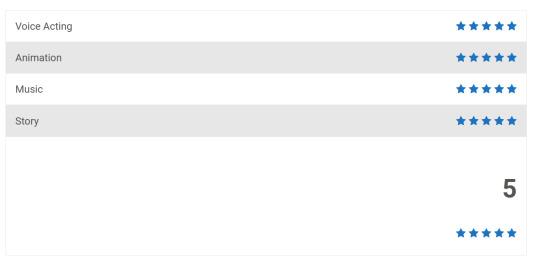
© 2023 Burkely Hermann. All rights reserved.
#my adventures with superman#jack quaid#lower decks#kari wahlgren#zehra fazal#chris parnell#debra wilson#catherine taber#lucas grabeel#subreddit#reddit#reviews#voice acting#max#spectrum#hbo max#rwby#warner bros discovery#conglomerates
3 notes
·
View notes
Photo
I'd just like to point out that gendered stories, toys etc mostly does work, you do have boys playing with tanks and girls outside Western Countries currently pay with dolls.
And you do have a crossover.

I'd describe the Sims as a feminine game that is also played by boys and men, mostly men and women now because the franchise is not being run well, and they have lost the appeal to the young. The trouble is that they feminised EVERYTHING in the West, and did it badly.
Nothing is now made for boys and men.
And that means that the women who liked the masculine stories of Star Wars, Star Trek, and so on, have suddenly found nothing is being made FOR THEM EITHER. Take Doctor Who. It was always popular with men and boys, and had some appeal to females but not a lot.

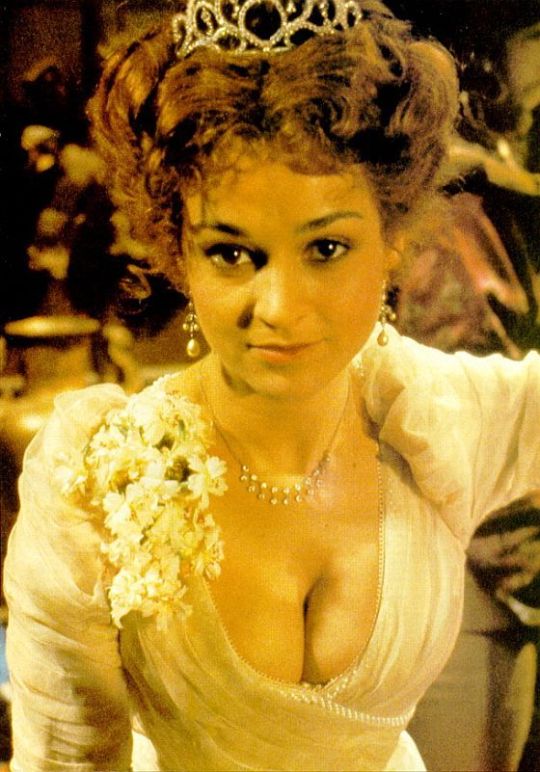
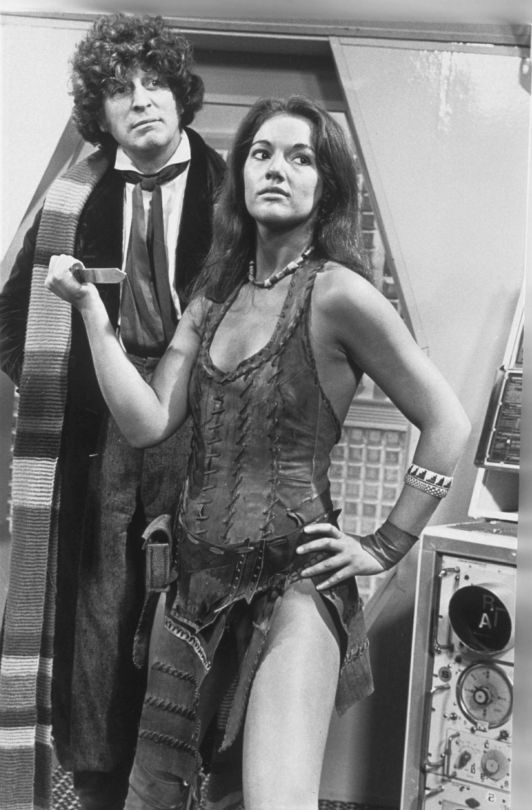
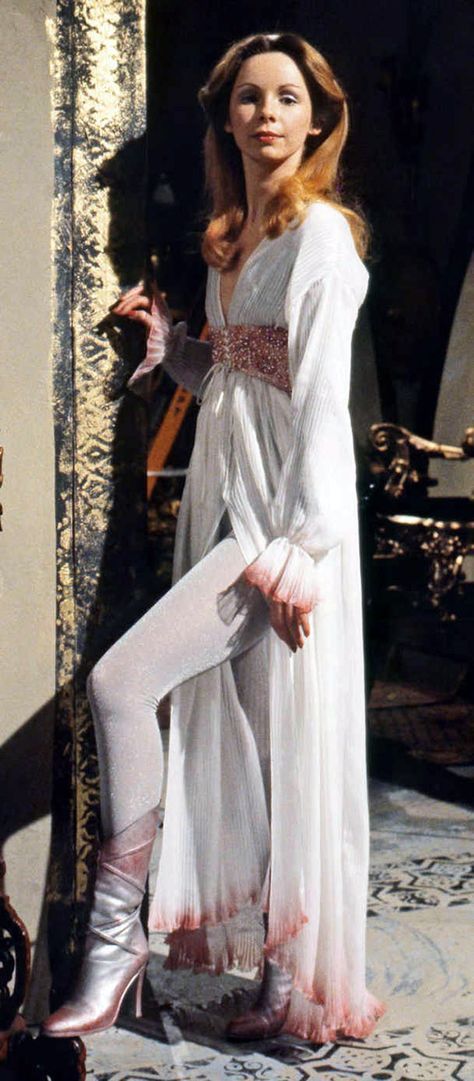
Then they slowly eradicated the appeal to "The Male Gaze". The reboot started off with a hottie ...

So the "Male Gaze" was catered to well and truly, and the character was both feminine and capable, but not the stereotypical Mary Sue of feminist productions. However, they put in something for the women, and it really took off.
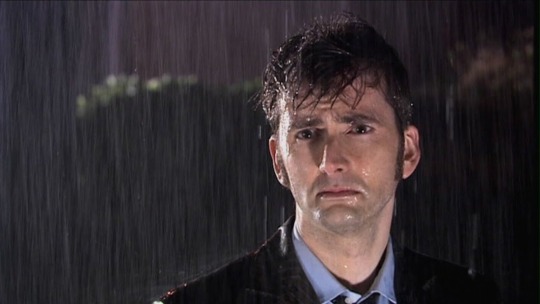
David's Doctor was masculine, and was attractive to the female demographic, and it wasn't the first time they had done that.
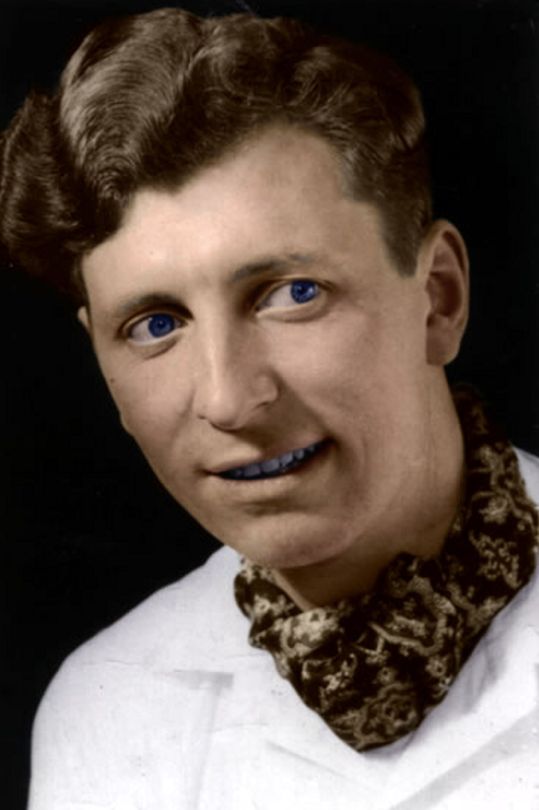
Tom Baker was regarded as a sex symbol in his time, and like David, he also drew in the most viewers. The show runners were catering to both men and women, even though the stories - somewhat violent, science fiction tinged with horror - were mostly appealing to the boys.
And they killed the franchise because they decided that was disgusting, and Doctor Who had to cater only to females, and the males would pay for it anyway.
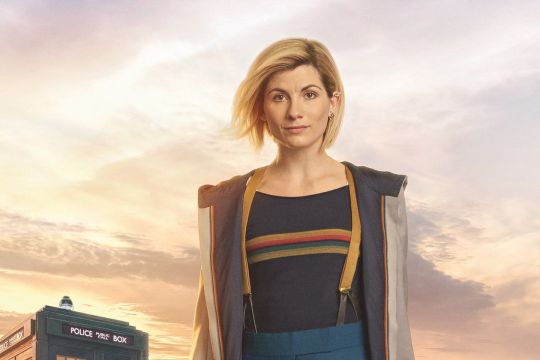
This is what they think appeals to straight women. They did the same thing to Tomb Raider, which was played by girls and boys, but I noticed it was males mostly who raved about it.
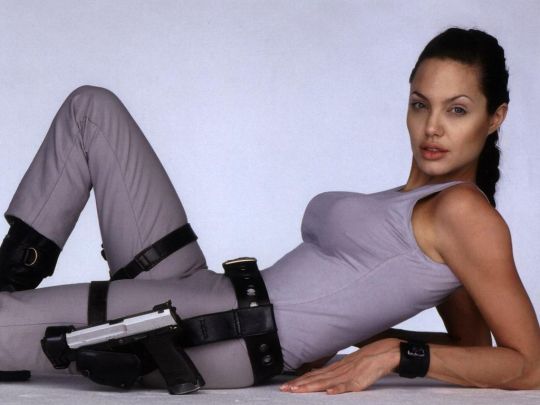
So for the recent reboot, they carefully eradicated anything that might be attractive to males - like breasts! They had a stereotypical gay man flouncing about everywhere, and Lara crying endlessly instead of being kick ass. They didn't appeal to ANYBODY, but they couldn't understand it, because Hollywood etc are totally dominated by miserable women and narcissistic gay men.
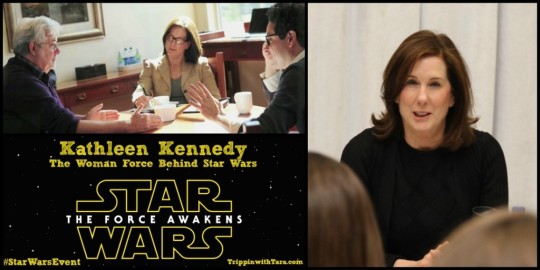
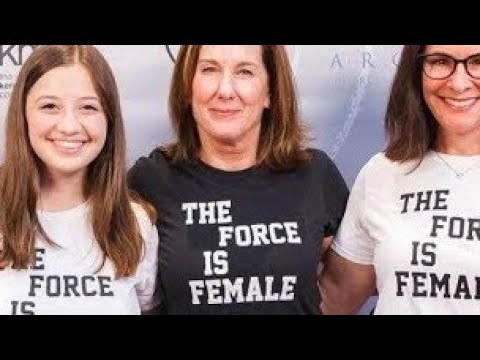
People who despise heterosexual males, and who despise white people generally, and who make everything sexist, racist, heterophobic ... and dull. I mean, you can have a successful drama or comedy about gay or lesbian people, and there will be no objections from those who are not in that demo. It was done to death. So long as you don't try and make it for a mass audience, you will make money. But when you imagine that that is the mass market, that most people are gay men or whatever, you get the recent Doctor Who or whatever Steven Universe turned into.
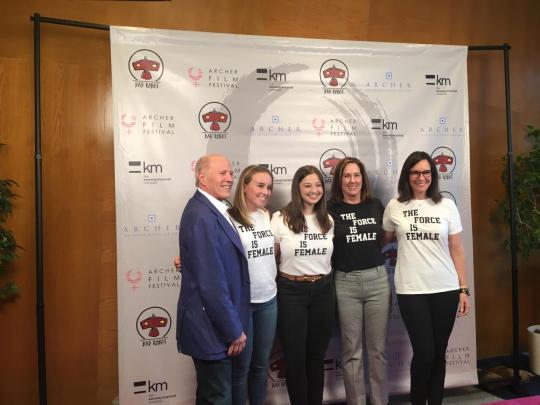
Yes, I have to repeat this for how astonishlingly dumb it is that they totally retooled a billion dollar franchise because they hated half of the human population and thought they would suck it up and pay for misandric crap anyway.
This is what they wanted for NuWho:
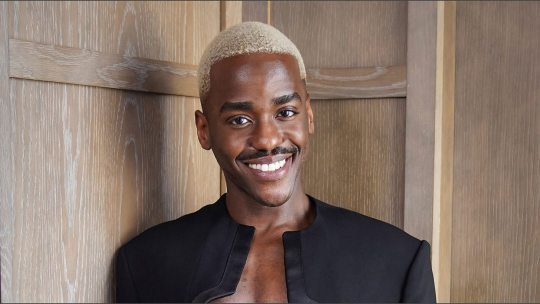
A gay man who hated the white British and said so publicly, and whose character was gaaaaaayyyyyy.
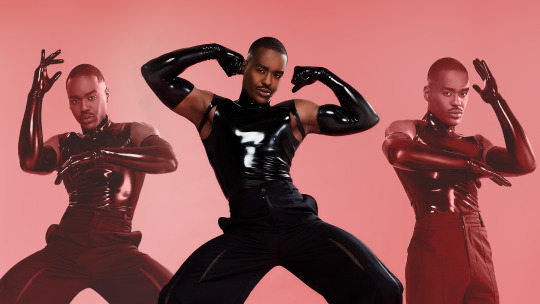
He managed to achieve the worst ratings ever. I don't know if even the most mincing queer imaginable actually wanted to watch that show. It was embarassing.
They even brought David Tennant's Doctor back just so they could make him gay too.
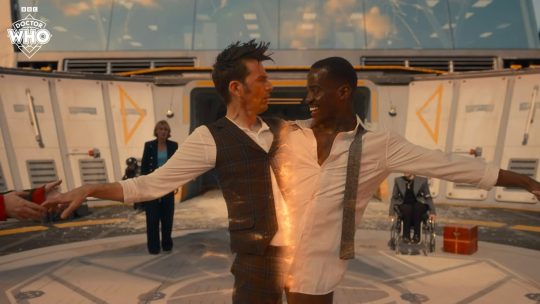
And thus they managed to kill off even the legacy. The now middle aged women who used to watch Dr Who to see David saw their sexi boi made weak and silly, vilified even by the characters for being "male presenting".
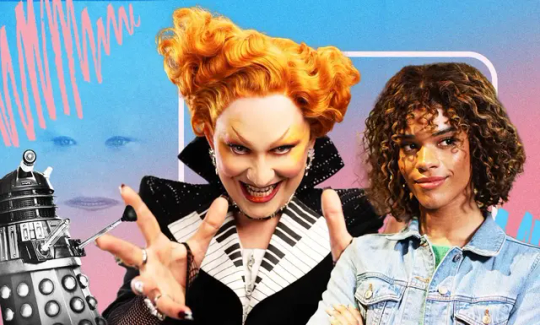
And suddenly it was all about transing everything. Yes, the show about adventures in time and space was ... whatever that is instead.
The question that always has to be asked is ... who is this for?
The answer from Leftists in power positions is "The Modern Audience" - an imaginary Utopia of perfect people, who are simultaneously black, gay, and trans, and only a bigot would question that that reflects reality in any way.
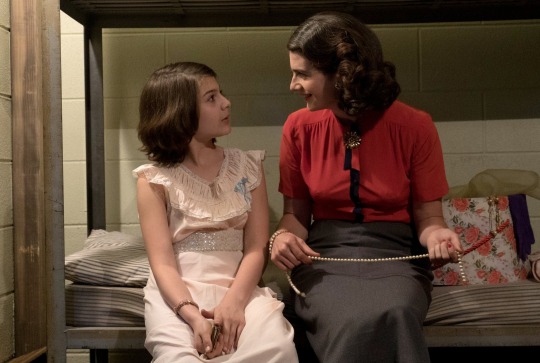
So we saw firstly that everything that was male became feminised, then it became female, and now it is trans, and the ratings continue to collapse across the West - except for the few productions which are either very masculine or very feminine.
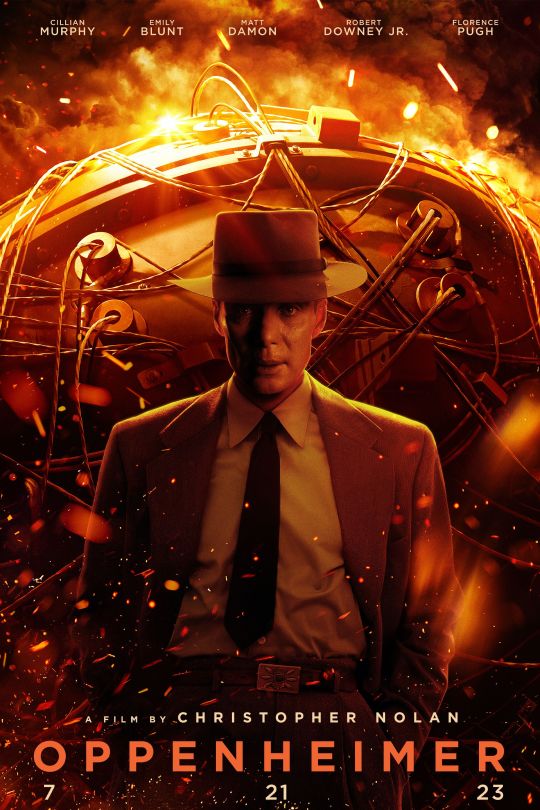
Hell, even the hit Joker was feminised.
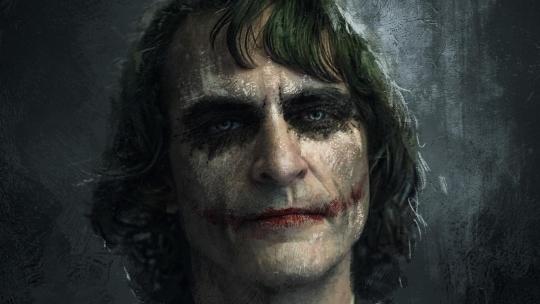
And promptly lost money. They managed to screw the pooch so bad it's got the monkey pox.
youtube
I feel like they just don't get it.
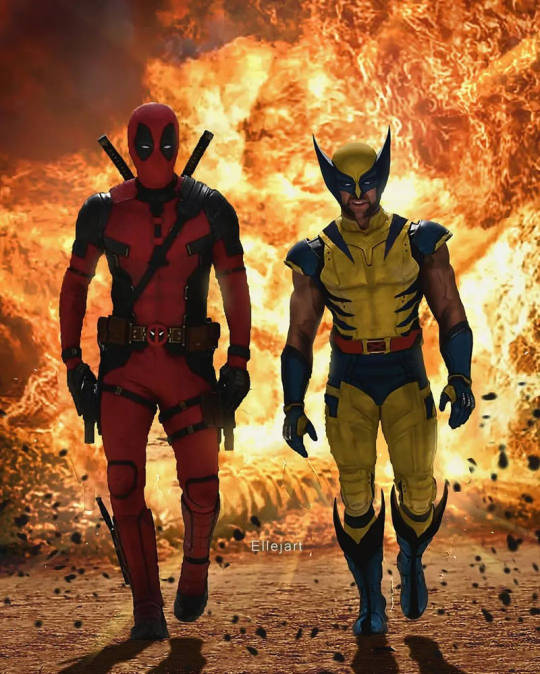
If they have masculine men doing masculine men stuff - and yes, I am aware of the gay subtext, the movie is still very masculine - then they will get a hit production. Most humans want to see masculine men and feminine women. It's basic biology.

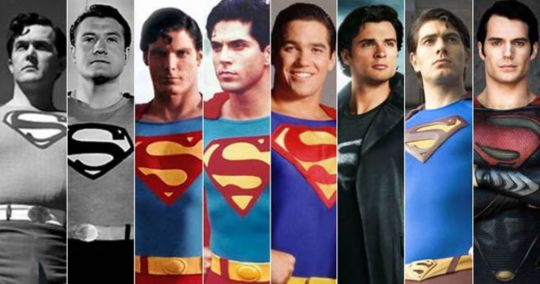
Heck, go back and see the animated Justice League; they dialled it up to eleven.

That was the peak. Impossibly masculine men and feminine women.

But they weren't stereotypes. The Flash was a goofball who kept putting his foot in it with women - yet they chased after him.
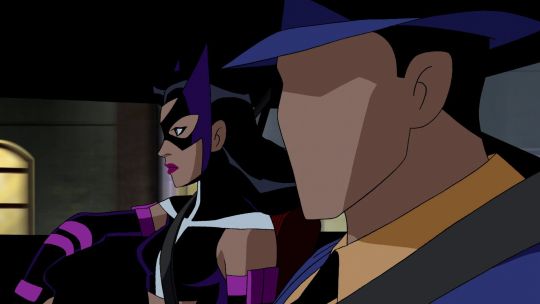
The chemistry between those two was amazing, but she was the fighter in their relationship; he was the thinker who saw the world through strange eyes.
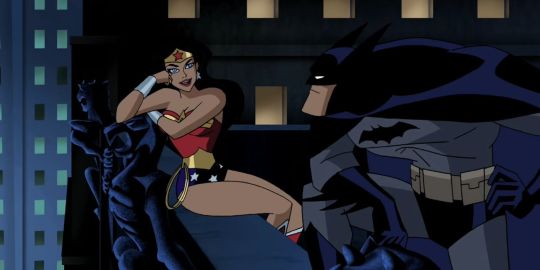
And Wonder Woman was infinitely tougher than Batman, but it was him she wanted. He pushed her away because he was afraid of being hurt, I think, and considering how some other women had treated him, you can't blame him for it.
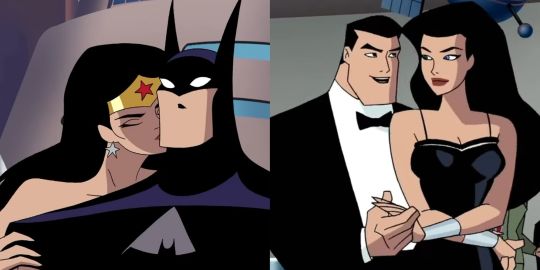
But she was definitely the sexual aggressor there, but also feminine and gentle. You could never have that character coming out of the productions made today - it wouldn't be allowed. Yet it was an incredible success.
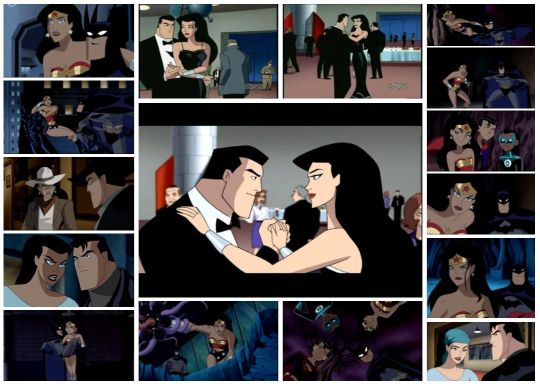
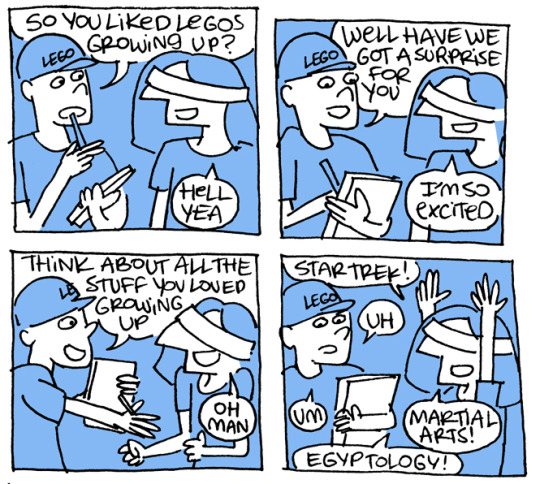
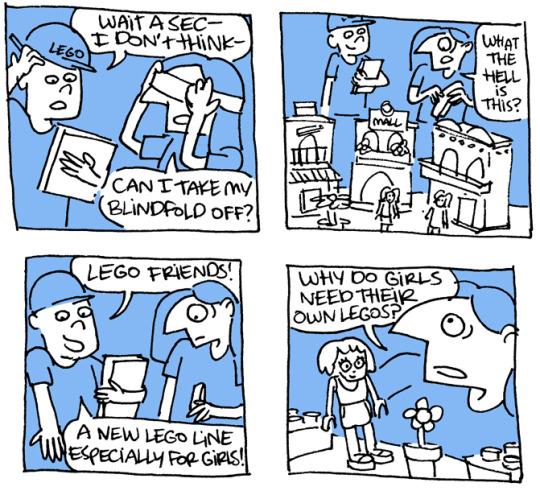
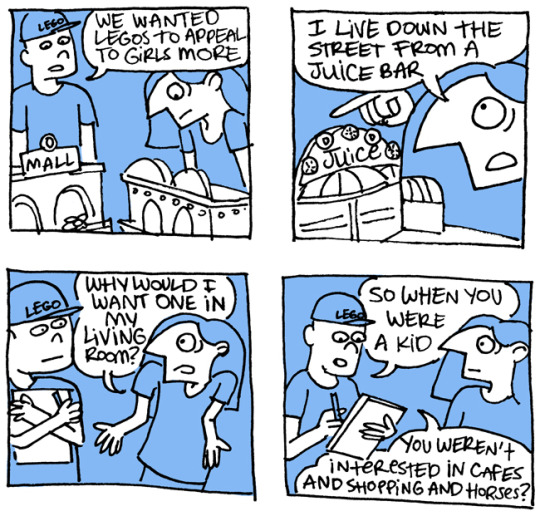
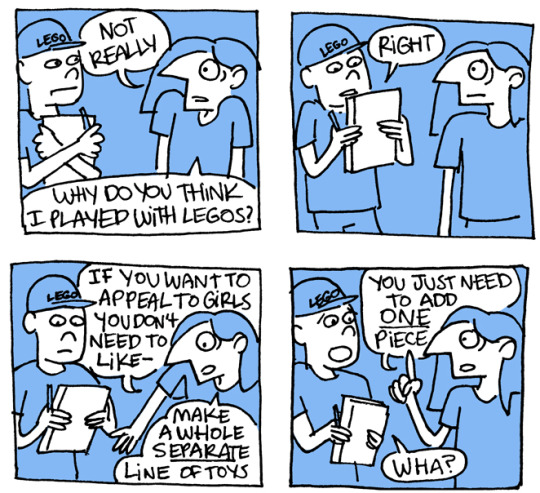
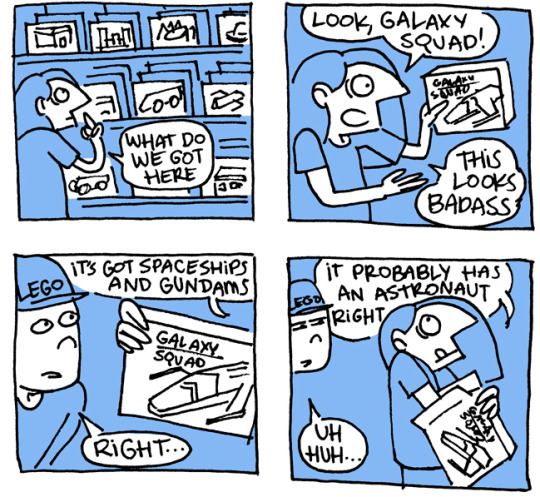
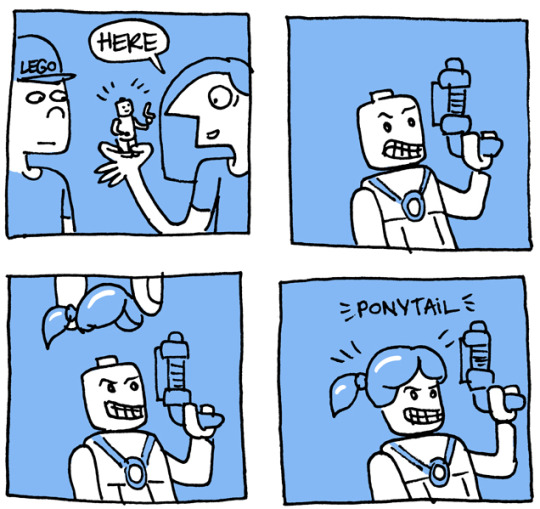
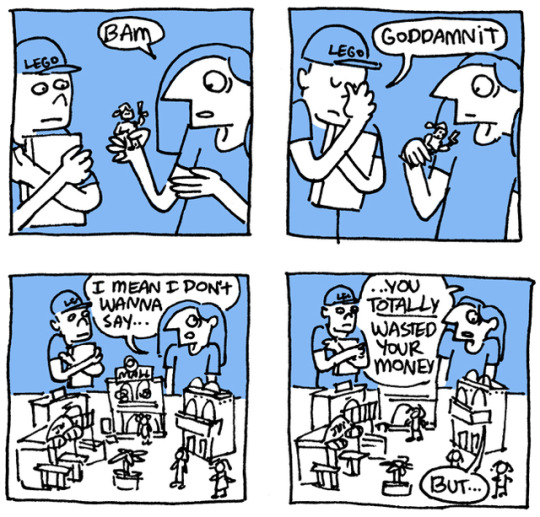
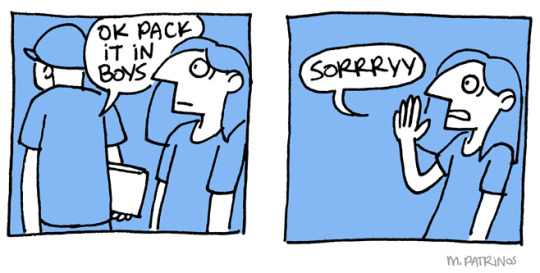
by Maritsa Patrinos
#Youtube#leftism#feminism#justice league#get woke go broke#male gaze#misandry#doctor wh#star wars#star trek#joker
128K notes
·
View notes
Text
Lucille Ball - The real Queen of Star Trek <3
The path to bringing Star Trek: The Original Series to television was both lengthy and challenging; however, series creator Gene Roddenberry received invaluable support from an unexpected figure - LUCILLE BALL <3
Without the assistance of this remarkable woman and her studio, the franchise might have faltered and never come to fruition.
Lucille Ball is primarily recognized as the comedic icon of I Love Lucy, a groundbreaking show that she produced and starred in alongside her husband, Desi Arnaz. The immense success of this sitcom, which aired for six years, enabled her and Arnaz to establish their own production company, Desilu Productions. Following their divorce in 1960, Ball assumed control of the studio, solidifying her status as one of the most influential women in Hollywood.
Four years later, Roddenberry approached Desilu with a concept for a pilot that would eventually evolve into Star Trek. Ball acquired the series, despite her initial lack of understanding; it is said that she believed the title referred to a troupe of traveling USO entertainers from World War II. In his book Inside Star Trek: The Real Story, author Marc Cushman noted that while she may have initially misinterpreted the Star Trek concept, the television industry’s “wacky redhead,” recognized for portraying a character with a penchant for outlandish schemes, had absorbed valuable lessons from Desi Arnaz. Despite being labeled as eccentric by industry insiders, Arnaz consistently demonstrated his critics wrong.
Nevertheless, she championed his vision of a space western, even in the face of skepticism from some board members. It was largely due to her support that “The Cage” was brought to fruition. Ball remained committed to the project through the production of two pilots and a substantial budget, leading to the legacy we know today. Studio accountant Edwin "Ed" Holly has been quoted as saying, "If it were not for Lucy, there would be no Star Trek today."
Without Lucille Ball's support, "The Cage" could have marked the conclusion of the Star Trek franchise. It is uncommon for second pilots to be commissioned without the backing of influential individuals. NBC had the option to decline Star Trek entirely; however, Ball, who had faith in the project, intervened and ensured its continuation in a manner that would have made any Starfleet captain proud. She is among the many talented women who have contributed to the enduring legacy of Star Trek into the 21st Century, and she stands out as one of the pioneers.
Her conviction in Star Trek is the reason for its existence as we know it today. Ball was not merely a comedian and a cherished television figure; she was also a shrewd producer who deserves recognition for her behind-the-scenes contributions, including her role in realizing Roddenberry’s vision. For this, we can all appreciate Lucy.
Lucille Ball helped Star Trek become a cultural icon in a number of ways, including:
Supporting the show
Ball supported the show through two pilots and a large budget, even after the first pilot bombed and production costs increased.
Overriding the board
Ball went against her production company's board to ensure the show had a second chance.
Financing the second pilot
Ball agreed to help finance the second pilot, which introduced William Shatner as Kirk.
Helping to achieve Roddenberry's vision
Ball helped to achieve the vision of Star Trek creator Gene Roddenberry.
Being a majority shareholder
As the majority shareholder on the board, Ball could have killed the project, but she didn't.
Ball's work on Star Trek is considered to be one of the most important things she did in her career. The Star Trek website says that without Ball, the original series might not have made it onto TV and become a cultural institution.
#Startrek #Lucilleball #Startrektos #StartrekOriginalSeries #Startrekthecage
0 notes
Text
Writing / worldbuilding prompt: mash together genres/settings never seen before (or rarely seen before)
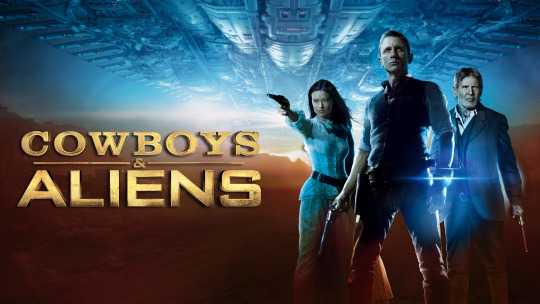
I know the 2011 movie 'Cowboys & Aliens' isn't the best movie in the world by any means, but I really enjoy the concept because it was something we hadn't really seen before and it got me thinking / inspired. A lot of the time when we talk about aliens, it's in a modern or futuristic setting, not some time in the more distant past.
Modern aliens: War of the Worlds, Close Encounters of the Third Kind, E.T., District 9, Mars Attacks, Men In Black, Paul, Independence Day, etc.
Future aliens: Aliens, Star Wars (I know it is 'a long time ago', but just go with me), Star Trek, a lot of superhero movies could fall in this category, etc.
I could fill both of those lists for ages, but how often have we seen aliens in a wild west setting? What other successful titles have we seen this kind of mash-up? If we continue with the wild west setting, we can swap out aliens for robots and get Westworld. Put zombies in the wild west and you get the Red Dead Redemption DLC Undead Nightmare. Put dinosaurs in modern day and you get Jurassic Park. Put DC superheroes in a medieval setting and you get the comic Dark Knights of Steel.
Find two things you don't normally see together (or haven't seen at all) and go from there. Or you could take a pre-existing story/trend and give it a twist to find something new. Break some expectations. Play around and just throw some observations/lists/pairings on the page.
Rolling with the alien idea some more, what if we broke away from the modern and future settings and there were aliens in a medieval setting instead? Quite often the stories of aliens invading earth are from the point of view of humans. What if it was from the POV of the aliens?
Quite often if we think of vampires, we put them in a victorian setting or a modern setting. What if we had a medieval vampire? Vampire cowboy? Sci-fi vampire? Caveman vampire?
Alternatively, you could look at an existing story and give it a twist. Treasure island, a story about pirates, was given a sci-fi twist and we got Treasure Planet. Pride and Prejudice, a regency era romance, gets zombies added and we have Pride and Prejudice and Zombies. Horror/slasher Winnie the Pooh gives us Winnie the Pooh: Blood and Honey. Sci-fi Swiss Family Robinson (already modelled on Robinson Crusoe a georgian era castaway story) gives us Lost in Space. Add a third genre and we get Star Wars (sci-fi, western with a splash of samurai). Modern, zombie Romeo and Juliet gives us Warm Bodies
What other things could we mash together? Sci-fi witches? Robot samurai? Dinosaurs and pirates? Modern knights? Victorian superheroes? High fantasy and sci-fi?
It can be a great exercise in worldbuilding or helping you break writers block because you need to figure out how your characters will navigate the world/situation. Lets continue with aliens as a concept for this example:
Are aliens commonplace in the world you are writing? Or are they an invading force?
Are they seen as a 'superior' or 'inferior' species to the originating species (lets say it's humans for this example) in your world? Are they whiped out? Enslaved? Segregated? Experimented on?
Using this fictional world, could you explore a world issue that might otherwise be a difficult topic?
What point of view will we be exploring? The aliens or the humans? Both?
What do they look like? How does being on Earth effect them (gravity, oxygen, sun, germs, etc). Can they adapt?
Is this a fish-out-of-water / isekai situation? Are the aliens friendly and just bumbling around as they learn about strange human culture?
Have they landed without humans realizing and are now hiding/in disguise?
What is the narrative conflict (man vs man, vs nature, vs self, vs technology, vs supernatural, vs society, vs time)? etc.
Explore the unexplored or take an idea and give it a twist. Can't decide on an idea? Make some numbered lists of genres, settings, creatures, stories, etc. and then grab some role-playing dice and have them decide for you when you roll them. A good handful of role-playing dice can be a really helpful writing tool (look up RPG dice mapmaking).
#writing#writing ideas#creative writing#writing prompts#worldbuilding#writing help#writing advice#writing exercise#cowboys and aliens#writing inspiration and references#pride and prejudice#pride and prejudice and zombies#warm bodies#west world#jurassic park#red dead redemption#undead nightmare#rdr#winnie the pooh#treasure island#treasure planet#lost in space#robinson crusoe#swiss family robinson#men in black#alien#paul#star wars#star trek#mars attacks
1 note
·
View note
Text
I do love that Space Western aesthetic
#Star wars#the mandalorian#the book of boba fett#din dijarin#cobb vanth#cad bane#star trek#Yes#Star Wars AND Star Trek are both Space Westerns#change my mind#leonard mccoy#bones mccoy#space western#space#westerns#space westerns
39 notes
·
View notes
Text
Every so often, I will think about how massively the Nausicaa books affected my personal philosophies by and approach to life: I grew up as a kid watching a lot of media with deep themes- Lord Of The Rings, Pride and Prejudice, Star Trek, etc- but manny things common to western media were directly challenged in Nausicaa.
Western media at the time presented war and battle as glorious- Lord of the Rings also took the time to show the desperation, the loss, but the triumph, the glory was there- although balanced by Eowyn and her descovered of the brutality of war, and how sagas do not communicate pain. I had never seen what war was like, had not gotten a perspective on the kind of loss, the kind of tragedy, that is warfare, until I read the books. The film portrays the events of the first volume, with some modifications that wrapped up the story neatly, as a single packaged unit- but those who read the books know that the story goes significantly deeper- they know the Dorok Empire, the abominations of Genecraft created and maintained at the behest of the Crypt, and the pointless nature of religious warfare, and it’s self destructive nature, as all humans innately desire connection, safety, and peace- desire community.
I was shown a world of armies- where Nausicaa explicitly ended up helping people in both sides, and this helped me to see that people, no matter the side, are people. And no matter the cause, each loss is devastating. I read and watched Nausicaa evolve from a princess of the winds to a warrior Queen, commanding ( at gunpoint) squadrons of armored horse claws and loosing all of her men- and each loss she FELT. I learned several things about deep, sincere love, and about the numbness of loss, from reading and re-reading her story.
There are moments when I truly wish that Miyazaki had had the time, finding, and creative space to take each volume and turn it into a film of its own, but also recognize that censors would likely uave prevented much of the most important aspects of those volumes from reaching their audiences back at the times that he was creating the films- but the story remains- it is there- it is deep and poignant, and at least once a month, I will sit in my favorite chair, and will contemplate humanity, our destiny, our impact- and the discourse presented in Maisicaa will rise front and center in my mind.
I understand why there are not more Nausicaa films-
But every once in a while I dream that they could be.
19 notes
·
View notes